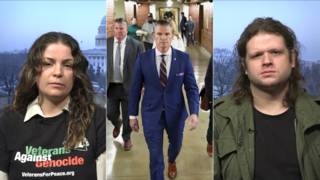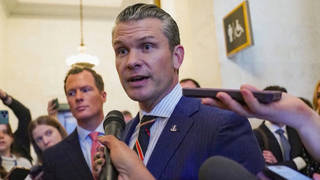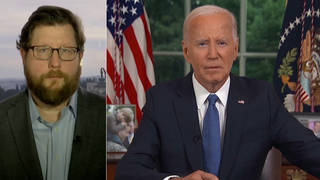In Iraq, Prime Minister Nouri al-Maliki is challenging the results of the recent elections that were narrowly won by former interim prime minister Ayad Allawi. On Friday, the United Nations and the Independent High Electoral Commission announced Allawi’s Iraqiya Party won ninety-one parliamentary seats, Maliki’s State of Law party won eighty-nine seats. Allawi won after receiving the backing of many Sunni parties. The New York Times reports Maliki has taken a number of steps to overturn the election results. On Thursday, a day before the results were announced, he quietly persuaded the Iraqi supreme court to issue a ruling that potentially allows him to choose the new government instead of awarding that right to the winner of the election. Meanwhile, officials in charge of purging the government of former members of Saddam Hussein’s Baath Party have said that they expect to disqualify more than fifty political candidates, many of them members of Allawi’s Iraqiya Party. That could strip Allawi of his victory. Prime Minister Maliki is also clamoring for a recount and is considering filing a legal appeal. While Ayad Allawi’s party won the most seats, the party fell far short of a majority. He will need to form a coalition government in the coming weeks.
Ayad Allawi: “We hope to enthrone this achievement by forming the government as quickly as possible, a government that is capable of providing security from one side and to offer the appropriate services to its people on the other side.”
There is concern the political tension could lead to an upswing in violence. On Sunday, six people died in western Iraq, including an official of a political faction in former Prime Minister Allawi’s electoral coalition. On Friday, a few hours before election results were released, two bombs struck a crowded market in Iraq’s mainly Sunni northern Diyala province, killing fifty-nine and wounding seventy-three. Earlier today, a pair of car bombs in the holy city of Karbala killed at least four people and wounded twenty-two.










